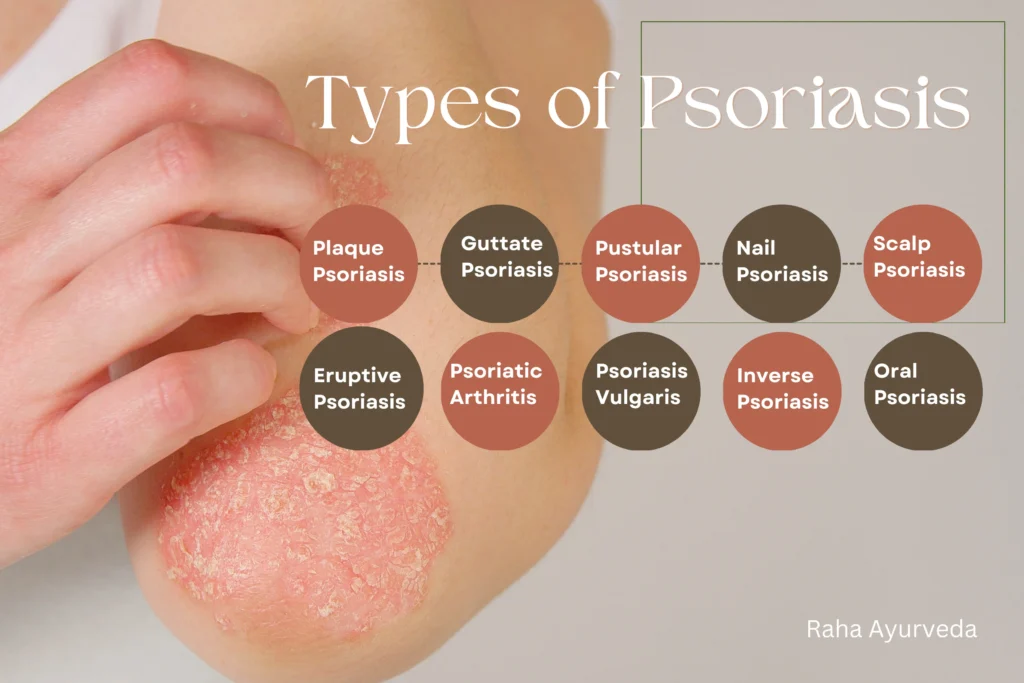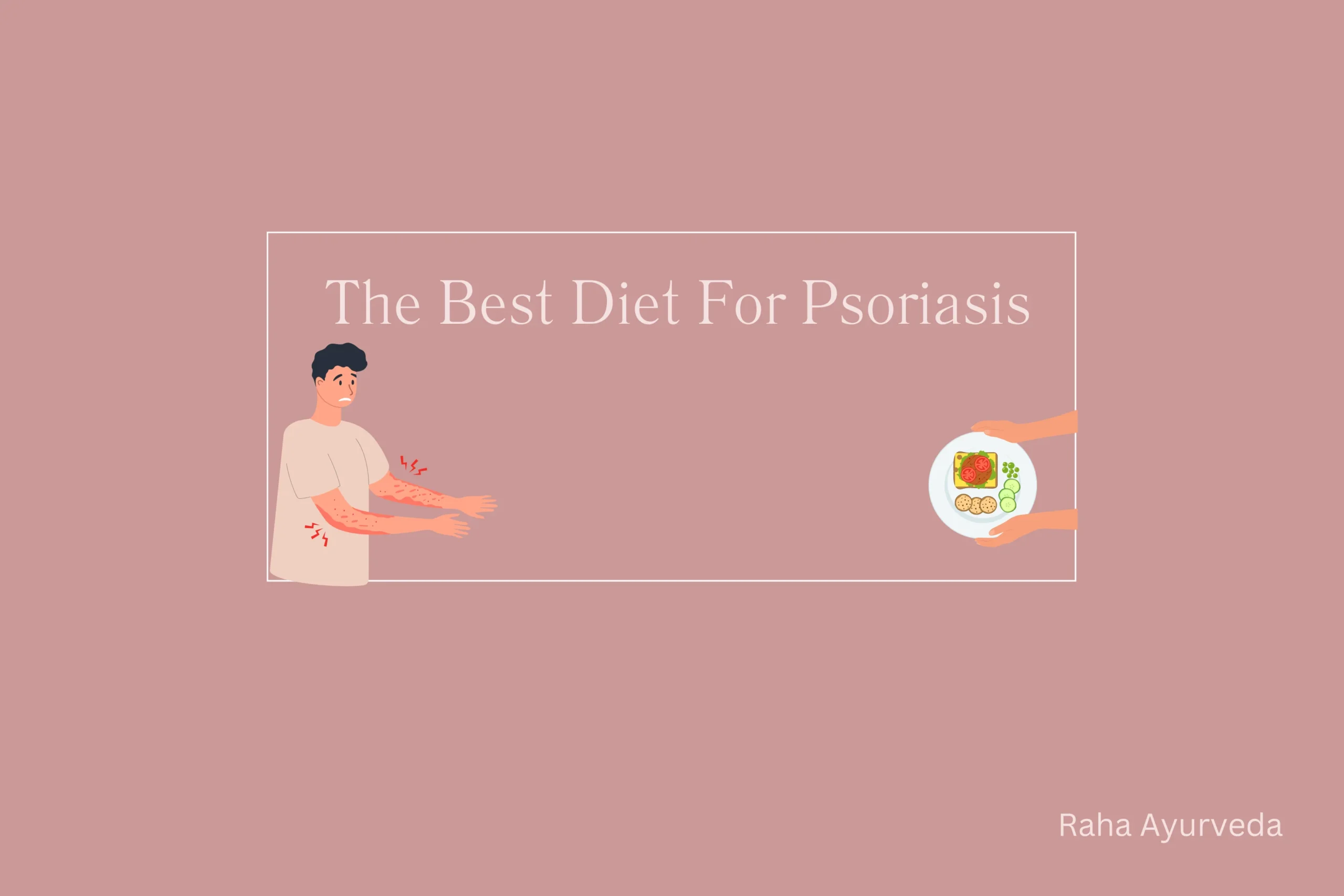Skin conditions can stem from microbial infections or reactions to specific triggers. Psoriasis, an autoimmune skin disorder, manifests as thick, scaly, itchy patches due to rapid skin cell growth. While it lacks a permanent cure, effective management is possible. This blog explores the causes, symptoms and effective diet for psoriasis patients.
Different Types of Psoriasis
Psoriasis presents in various forms, from localized patches to widespread coverage. Types include:

- Plaque Psoriasis
- Guttate Psoriasis
- Pustular Psoriasis
- Erythrodermic Psoriasis
- Nail Psoriasis
- Scalp Psoriasis
- Psoriatic Arthritis
- Psoriasis Vulgaris
- Inverse Psoriasis
- Oral Psoriasis
- Eruptive Psoriasis
Potential Causes of Psoriasis
Though the exact cause remains unclear, factors like genetics and environmental elements play a role. Triggers may include:
- Diet
- Injury
- Medication
- Smoking and alcohol consumption
- Mental stress
Also Read : What Triggers Psoriasis
Symptoms of Psoriasis
Manifestations can vary, presenting as:
- Raised, scaly patches
- Flaky, cracking skin
- Blistering
- Itching or burning sensations
- Abnormal nail growth

Diet for Psoriasis Patients
If you’re dealing with psoriasis, what you eat can play a significant role in managing your symptoms. While there’s no one-size-fits-all diet for psoriasis, certain foods and dietary approaches have shown promise in reducing inflammation and flare-ups. Here’s a simplified guide to help you make healthier choices:
1. Fatty Fish: Incorporate fatty fish like salmon, mackerel, and sardines into your diet. These are rich in omega-3 fatty acids, which have anti-inflammatory properties and can help alleviate psoriasis symptoms.
2. Fruits and Vegetables: Load up on colorful fruits and vegetables, especially those high in antioxidants. Berries, grapes, and cruciferous vegetables like broccoli and kale can help reduce inflammation and support overall skin health.
3. Healthy Sources of Fat: Opt for healthy fats such as olive oil, coconut oil, and avocados. These fats have anti-inflammatory effects and can contribute to healthier skin.
4. Dietary Supplements: Consider adding supplements like fish oil, vitamin D, and probiotics to your routine. These supplements can help support your immune system and gut health, which are closely linked to psoriasis.
5. Psoriasis-Friendly Diet Plans: Explore dietary plans like the Mediterranean diet, gluten-free diet, or Paleo diet, which emphasize whole foods and can help reduce inflammation in the body.
6. Turmeric: Incorporate turmeric into your cooking or try turmeric supplements. Curcumin, the active compound in turmeric, has potent anti-inflammatory properties and may help alleviate psoriasis symptoms.
7. Drink Water: Throughout the day, drink plenty of water. Proper hydration is essential for maintaining healthy skin and can help prevent flare-ups.
Remember, while dietary changes can be beneficial for managing psoriasis, it’s essential to consult with a healthcare professional or registered dietitian before making any significant changes to your diet. With the right approach to nutrition, you can support your overall health and well-being while managing psoriasis effectively.
Also Read : Managing Eczema, Psoriasis, and Acne
Ayurvedic Approach to Treating Psoriasis
Ayurvedic treatment of psoriasis focuses on purging toxins internally and externally. Therapies such as Abhyangam, Vamana, and Takra Dhara detoxify the body. Topical application of herbs like turmeric and neem aids skin healing. Additionally, meditation and pranayama help reduce stress, a trigger for psoriasis flare-ups.
Also Read : Ayurvedic Strategies for Managing Psoriasis & Psoriasis Management : An Ayurvedic Perspective

Leave a Reply